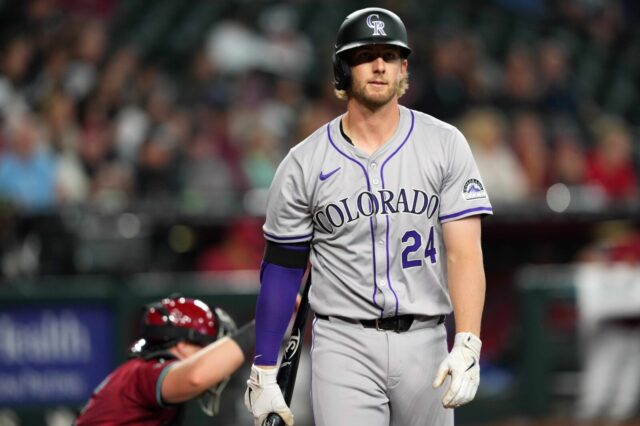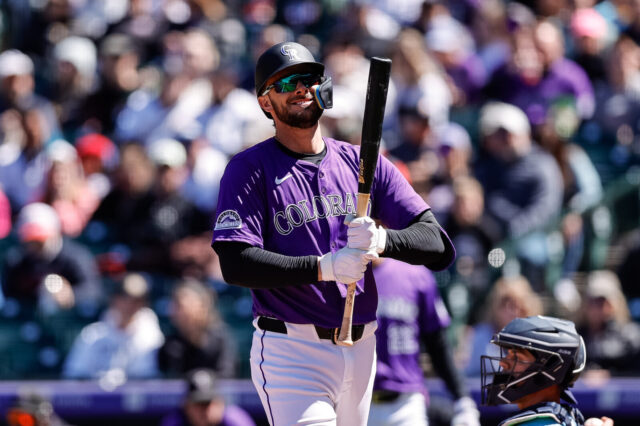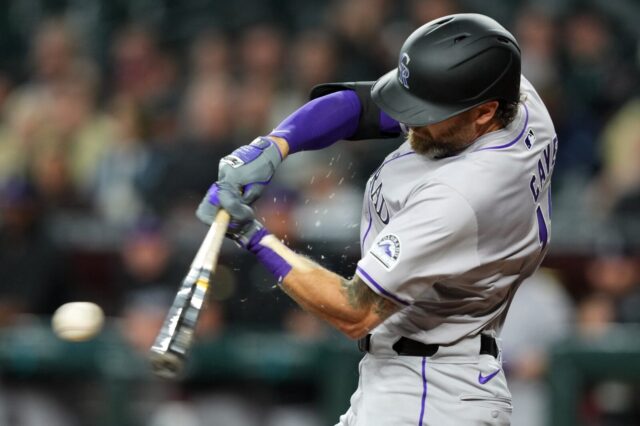Jeff Bridich almost certainly bought himself time in the court of public opinion through his club’s first five picks of the 2015 MLB draft.
It also buys fans a definitive firsthand look at whether or not the new regime of the Colorado Rockies front office is any different from the last, or if it is business as usual. The catch is, we’re probably going to have to wait four or five years to know the result.
In case you don’t follow such things as the Major League Baseball draft (and one could hardly blame you if you don’t), the Rockies selected players out of high school with their first five picks, starting with shortstop Brendan Rodgers, then continuing on with a pitcher, a third baseman, and two more pitchers. (The names are not important, you see. It’s best you forget about them for a few years, lest one particularly excellent or poor season in the lower minors give you skewed expectations).
And while it may not be unusual for teenagers to come up and make an impact in short order in sports like hockey and basketball, the road of development in baseball is long and arduous, particularly for a player not afforded time to develop in the collegiate ranks.
It is for that reason that high school draft picks generally take longer to reach the majors from draft day than their collegiate counterparts. Part of the reason is that those few years in college help mature and prepare young players’ bodies for the rigors of the professional game, while the other aspect is that college baseball acts as a substitute for the lower minor leagues for many top prospects.
At any rate, there’s a good reason why every time some hyped-up prospect makes his major league debut, a snarky writer points out that the kid is still older than Bryce Harper. Playing a full major league season at age 19 simply doesn’t happen very often, so expecting any of the Rockies 2015 picks in the majors any time soon would be foolish.
More intriguing are the implications of Bridich’s first draft as general manager. On the surface, there’s no reason to deduce anything suspicious about Colorado’s selection of five straight high school players (and six of its first 12 picks overall). Baseball’s draft is so deep and the development process takes so long that most ‘boards’ for teams probably look almost identical. High school players tend to be riskier (and have less ‘instant gratification’ factor) so their selection typically depends on a team’s perception of and comfort level with that risk.
But more importantly, it tells us that Bridich has faith in the club’s polarizing farm system.
Colorado’s minor league system often pops up among lists of the best, or at the very least, most underrated in all of baseball. Yet on the other hand, its inability to produce even one bona fide No. 1 pitcher from the draft makes it a prime target for fans and pundits who are fed up with the losing.
Those will be the hands that Bridich places his first crop of young players in, for better or for worse, to groom them to become the new faces of the Colorado Rockies. History tells us that the hitters will be excellent, but the pitchers? Not so much.
Much ado has been made since Bridich’s hiring about the lack of turnover within the organization. How can anything be different when the same people are running the show? It’s a fair question and one that many of us would love to know the answer to. The not-so-subtle refrain from the organization is that you’d be amazed what a few empowered baseball minds can change. Beyond that, I could add that we can’t possibly know all of the changes that have taken place behind the scenes, specifically those regarding the developmental levels of the organization.
However, it’s also well within a fan’s right to question everything about an organization that can’t possibly be more ambiguous about its plans or intentions to improve an on-field product that has failed to climb out of the NL West’s cellar for far too long.
Send a wave to the draft class of 2015 on their way down the road to the minors, and know that Jeff Bridich believes that these guys are in better hands with his organization than in the college ranks. Whether or not you agree with him, we’ll know for sure in a few years.
Until then, we wait on those players, much as we do with Bridich, to see if things are any different from the last regime than they appear on the surface.



